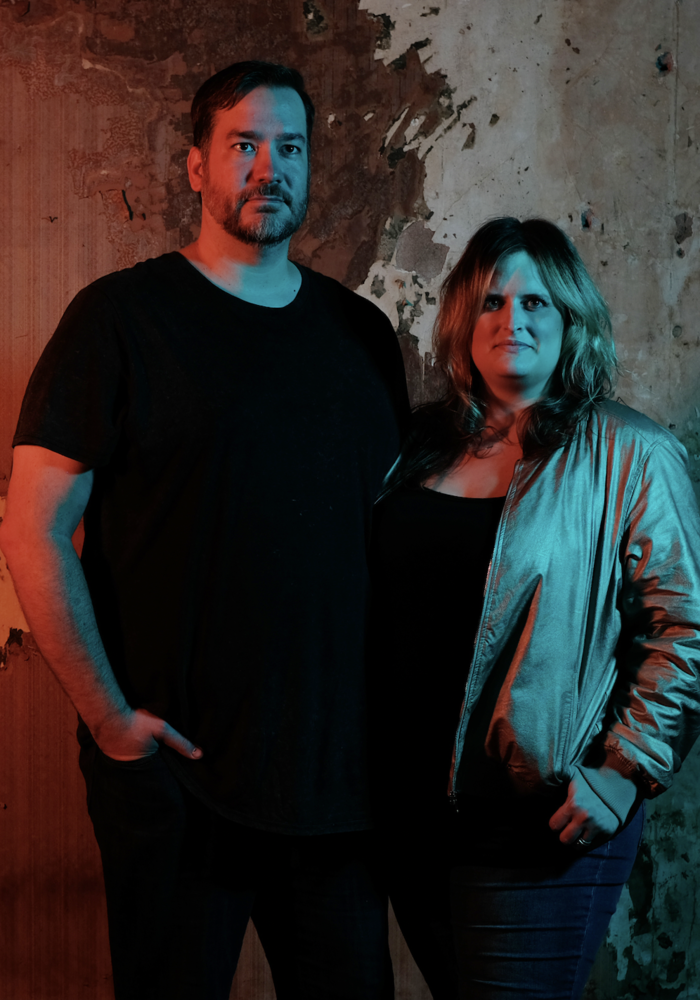There are many sides to the music industry, and the audience usually only get to see the shiny end result from the single, to the music video, to the live show. One aspect is being on the road and the lifestyle that goes along with it.
“When you look at A Level Tours, you’re looking at one artist - up to 100 roadies or more to make the show happen,” Courtney Klimson one of the founders of The Roadie Advocacy Group explains, “And for every roadie, there are at least 2-4 people; spouse, partner, children, parents who are directly impacted by the effects of the tour. At any given time there are multiple tours happening worldwide.”
“An argument round our house was when are we going to stop kicking the can down the road on common issues,” Paul Klimson, monitor engineer to such artists as The Roots and Justin Timberlake, “and the problem is that you get in on a Wednesday and are then packing again to leave the next day. So while we were mad at each other for some things that just went on for 15 years, there really was no opportunity to find resolution. But then to finally be able to gain clarity through therapy…that was a huge release.”
The Klimsons set up The Roadie Clinic in July 2019 pre-COVID to look at finding solutions to ongoing issues with tour life, but during the pandemic they were really able to expand and hit the ground running. Covid highlighted so many unhealthy aspects of life in general, as well as in the music industry that have been normalised. “I hope that the work people have done over this break doesn’t get lost into ‘we gotta get out there and make money again’. It has to change.” says Paul, “The industry will never give you the energy that it takes, you’ll never get refilled on the road in the industry. It’s imperative that you keep rejuvenated, we’ve all learned how to live on nothing so don’t blow that by giving away all your time just to get back up to the old numbers.”
So how did it start and what are their goals?
“We lived in New York City but we’ve always had a dream to just get out of here, move upstate, have a cow, a goat and chickens and make a little compound for musicians to come and record at. Over the years we’ve had so many crews around our table. Courtney would invite them to our house and cook for them and it was usually a minimum of four hours of listening,” he laughs, “that was the average time, sitting and listening to all of the issues of the road and their experiences. It’s a tough situation to connect with people that understand when we’re all in our little bubbles bouncing around the country.”
The same themes came up time and time again; exhaustion, isolation, mental illness, safety concerns, addiction, divorce, broken families, suicide, health insurance, tax advice, managing budgets, legal help, HR resources.
“We want to be generational, always building, always growing, always paying attention and taking care of our community as best as we can. For the younger engineers, LD’s or stage hands it was starting out with questions like, how do you guys budget, how do you deal with freelance, insurance questions, how to exist as a single entity business, structuring taxes and paying bills, and health insurance was always a big one. There was a lot of disconnection between home and the road and dealing with that stigma of “when are you going to get a real job?” Partners not understanding what they do, and how much honour comes with that, the fact that they know that they make stuff happen out of thin air every night! It was really just this overall picture of what someone goes through the moment they walk out their door regarding interpersonal skills, family, kids, extended family. There are all these questions and much like us, we never stopped to figure it out.”
“I haven’t had to turn anyone away who has reached out to us for assistance, and I don’t plan to,” says Courtney, “We are currently in our fundraising/building phase, looking to build programs and resources for future use.”
So far, while not even officially open, they have helped 60 clients this past year with their five pillars:
Restore - therapy, support groups, and access to the retreat in Niles once construction is complete.
Family - learning communication skills, kids resources, leading to eventually having an emergency care network and networking families per tour.
Finance - learning basic literacy, how to invest and budget.
Recovery - which consists of 12-step roadie-led meetings and networking
Human Resources – overdose prevention training, suicide and mental health education, sexual harassment + standards of conduct training, legal recommendations, gig education, and eventually women’s and LGBTQ+ services.


